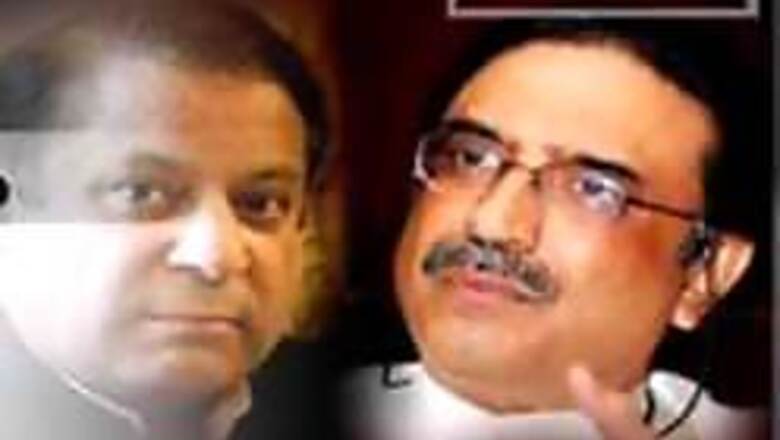
views
Islamabad: The widower of Benazir Bhutto, Asif Ali Zardari - who has been voted in as the new president of Pakistan - will have to contend with a host of critical problems including militant violence and an economy in crisis.
Investors, longing for an end to political uncertainty that has helped drag stocks and the rupee down, hope that the result of the presidential vote by members of the two-chamber Parliament and four Provincial Assemblies will usher in a period of stability.
But the chances of that appear slim, not least because of militant violence spilling out of the northwest that this week apparently brought an assassination attempt on Prime Minister Yousaf Raza Gilani.
Zardari was thrust into the centre of politics by his wife's assassination on December 27 last year, and then to the centre of power by a February Parliamentary election victory by their Pakistan People's Party (PPP).
His decision in August to begin impeachment proceedings against former president Pervez Musharraf led to the latter's resignation, and cleared the way for Zardari to win the top job.
But political uncertainty, exacerbated by a split in the PPP-led coalition last month, security worries and a sagging economy have sapped investor confidence and dragged Pakistan's main stock index down 34 per cent this year.
The index rose 1 per cent on Friday, partly helped by optimism that the vote would bring some political clarity. The beleaguered rupee has lost 20 per cent against the dollar this year but firmed slightly on Friday to 76.40/50.
Pakistan's dwindling foreign exchange reserves, widening current account deficit and sliding currency could result in a ratings downgrade as doubts mount over its ability to meet external debt obligations.
But it will probably avoid sovereign debt default as its stability is such an important geopolitical factor institutions such as the International Monetary Fund will eventually help it meet obligations, analysts say.
Zardari, who spent 11 years in jail on corruption and other charges but was never convicted, is seen as close to the United States and has repeatedly stressed the commitment of nuclear-armed Pakistan to the campaign against militancy.
But he will take office as anger with the United States is boiling after a bloody incursion by US ground troops into a remote village on the Afghan border this week.
Musharraf saw his popularity dive partly because he was viewed as he too close to President George W Bush. Zardari will walk a tightrope as he tries to assure Washington of his support on security, while trying to calm his people's anger.
His two rivals for the president's post were Saeeduzzaman Siddiqui, a former judge, nominated by ex-prime minister Nawaz Sharif's party, and Mushahid Hussain Sayed, a senior official of the party that backed Musharraf and ruled under him.
Analysts say rivalry between the PPP and Sharif's party, the country's second biggest which quit the coalition last month, could bring a return of the fractious politics of the 1990s. The battleground that ardari had to face was Punjab, Pakistan's richest and politically most important province, ruled by Sharif's party.
Rivalry between Punjab and the central government undermined stability in the 1990s and could do so again, analysts say. The turmoil of the 1990s, when Bhutto and Sharif served two terms as prime minister, was brought to an end by then army chief Musharraf's coup against Sharif in 1999.
For now, analysts say, the military wants to stay out of politics but intervention is always possible if economic and security problems get much worse.




















Comments
0 comment